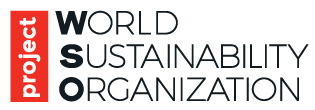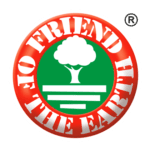Sustainable Fisheries and Fleets
Friend of the Sea certification programme contributes to the health of the oceans by certifying and promoting sustainable fishing practices.
The lives and livelihoods of hundreds of millions of people around the world depend on fisheries and aquaculture for income and nutrition.
Growth in the global supply of fish for human consumption has outpaced population growth in the past five decades, increasing twice as fast as population growth on average.
Unsustainable fishing practices and overfishing threaten the health of our oceans and access to marine resources for future generations.
What is fleet sustainability?
Sustainable fisheries management is therefore key in order to protect the ocean’s environment and safeguarding our resources for future generations.
Sustainable green fleets, as part of a sustainable fisheries development and planning programme, will significantly contribute towards maintaining fleet sustainability and ensuring that wild-caught sustainable seafood is sourced from well managed populations, not overfished and have been captured using fishing gear that has minimal impact on the habitat and ecosystem as a whole.
At Friend of the Sea our aim is to promote sustainable fisheries’ management through the certification of specific practices and sustainable fleet planning.
The Standard
Friend of the Sea criteria for sustainable fisheries require:
- non-overexploited target stock according to FAO, Regional Fishery Bodies and National Fisheries Authorities;
- no significant impact on the seabed;
- selective fishing gear (max 8 percent discard);
- no bycatch listed as ‘vulnerable’ or worse in the IUCN Redlist;
- compliance with legal requirements (including TACs, no IUU, mesh size, minimum size, etc.);
- waste and energy management;
- social accountability.
Additional criterion for the certification of tuna from sustainable fisheries:
- the use of non-entangling Fish Aggregation Devices (FADs)
FAD free
Since the beginning of 2016, Friend of the Sea has introduced new criteria for the certification of tuna from sustainable fisheries, requiring the use of non-entangling Fish Aggregating Devices (FADs).
These floating objects are commonly used by tuna purse seine vessels and some commercial pole and line fleets. They are made of a series of old nets suspended and weighted down from a floating section.
Recent studies have shown that the old nets used on FADs represent the main cause of death for sharks and turtles. Even FADs which are not recovered and drift away unused can cause entanglement resulting in death.
The new Friend of the Sea requirement for non-entangling FADs is expected to drastically reduce mortality rate of these endangered species.
Friend of the Sea approved vessels will be obliged to use non-entangling nets and report on the use of FADs for each of their vessels thus contributing to global sustainable fisheries management.
Technical Documents
Friend of the Sea has two active versions of the Wild standard (version 3.1 and version 4) and for this reason even two versions of the Audit Guidance. For more info on the transition from one version to the other, please consult the “Guideline transition from FOS Wild v.3.1 to FOS Wild v.4” document or write to quality@friendofthesea.org
Friend of the Sea’s Certified Fisheries and Fleets contribute towards sustainable fisheries management
The Friend of the Sea certification programme contributes to the health of the oceans by certifying and promoting sustainable fishing practices through the development and planning of a sustainable fisheries approach.
More and more fisheries around the world are motivated to fish sustainably, in order to meet Friend of the Sea standards and achieve certification.
The following fisheries are approved by Friend of the Sea per given species and their products have gained the certification.
Certified seafood has seen highly significant growth over the last 5 years, both in certified wild catch and aquaculture, through a variety of different certification programmes. A number of benchmark studies have been carried out to assess the validity and reliability of these certification programmes.
According to the report “State of Sustainability Initiatives Review: Standards and the Blue Economy”, developed by the International Institute for Sustainable Development, the International Institute for Environment and Development and the Finance Alliance for Sustainable Trade: Friend of the Sea has become “the single largest source of certified wild catch on the global market”.
Would you like to receive a quotation for Friend of the Sea audit and royalties to use our logo?
Please, fill out the online Preliminary Information Form (PIF) for Sustainable Fisheries and Fleets Certification:
- All the information will be kept strictly confidential and implies NO commitment from your company.
- The Friend of the Sea certification is voluntary and NOT mandatory to gain access to markets.
- The application process is NOT discriminatory on size, scale, management, minimum number of operators and number of vessels involved. Nonetheless, enhanced fisheries and enhancement activities, regarding wild catches, cannot apply for certification.
- Friend of the Sea is a NGO and it strives to make participation in the audits affordable for all companies.
- Please, contact us for more information on Government funding which might be available in your Country for sustainability certifications: info@friendofthesea.org



